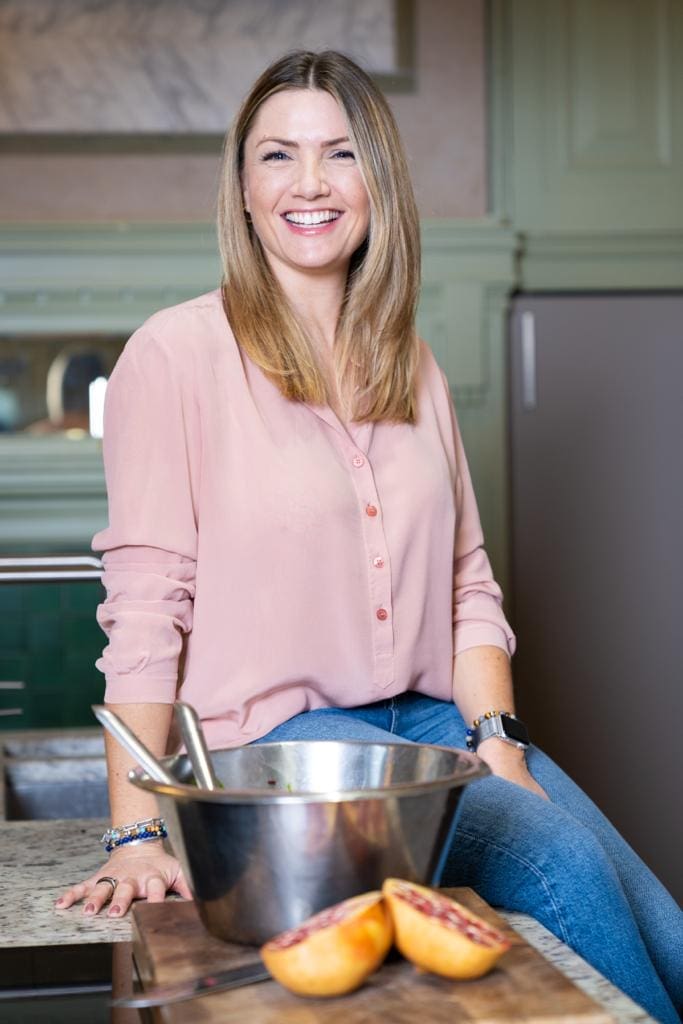Improve your Mood with your Food
October, the month of spookiness and seasonal changes.
I can’t tell you how many time I’ve discussed the weather with clients over the past month. A strange sentence to begin with, I know, but bear with…
There’s been a definite shift in temperature and autumnal days are getting more and more. Thankfully, these include crisp, sunny days but so far, there’s been more rainy and dull days. This is the reason why I wanted to quickly discuss something that has been cropping up a lot in my clinic recently…Seasonal Affective Disorder or SAD.
SAD is a hormonal imbalance between melatonin and serotonin; due to the reduced amount of time we spend outside during the colder months. It affects approximately 2 million people just in the UK alone and is predominantly more common in women than men.
As the days begin dark and draw to a close earlier and earlier, you may find yourself feeling a bit ‘meh’ more than usual. Here’s the sciencey bit – a small gland in the brain called the pineal gland, produces more of the hormone melatonin during the winter months, which regulates glandular function and makes us feel more sleepy. Serotonin, Melatonin’s counterpart, is known as the ‘happy hormone’ and is secreted during daylight exposure. Therefore, the less daylight, the less serotonin and the more out of balance the two become.
Symptoms may include:
- Low mood
- Appetite increase/food cravings – when there is insufficient daylight available, the body will try and boost its serotonin levels by craving sugary, starchy carbohydrates and fatty foods
- Low energy
- Irritability
- Difficulty concentrating
- Low libido
- Depression
- PMS-type symptoms
- Increased desire to sleep – sleepy during the day but unable to sleep at night
- Increased feeling of ‘feeling useless’


KATE DEVINE. IMAGE © TOM PITFIELD PHOTOGRAPHY
I always recommend to my clients to try to get outside as much as possible; for a walk/exercise, enjoy your down time by sitting reading a book outside/drinking a mug of something warm, gardening, walking your dog/cat (that’s a thing, right?). It doesn’t have to be anything too overwhelming, but getting that exposure to natural daylight will help to keep a balance between the sleepy and happy hormones!
Light therapy is another good way of balancing those hormones for those times when you can’t get outside. A light therapy box or lamp mimics outdoor light. It is composed of fluorescent lights on a metal reflective base with a plastic screen on top to diffuse the light and filter out harmful UV rays. All you have to do is sit in front of it, close enough so that your eyes and skin can absorb the light (follow the manufacturers instructions as they all differ slightly). The machine gives off a bright light that simulates outdoor sunshine, therefore boosting serotonin, melatonin and vitamin D, as well as other beneficial effects. You can find them at www.lumie.com or Amazon but make sure it has no less than 10,000 lux.
Supplementation of Vitamin D (especially D3) is a must as well, for the same reason as above – lack of sunlight exposure on the skin. Vitamin D is responsible for the absorption of calcium and phosphorus; both are critical for building bone and maintaining teeth and muscle health. It can also help reduce cancer cell growth, help control infections and reduce inflammation. It is naturally present in only a few foods like the flesh of fatty fish and in smaller amounts in egg yolk and beef liver; but added to some foods like fortified cereals, orange juice, dairy & non-dairy milks.
I would recommend to supplement during the months of October to March as these are the months we are likely to spend less time outdoors. The Recommended Dietary Allowance (RDA) for vitamin D supplementation for adults is between 800IU-1000IU per day and babies and children between 400IU-600IU per day, with the Tolerable Upper Intake Level (UL) for adults and children age 9 and over is 4000IU per day.
Avoiding/reducing intake of certain foods and drinks can help alleviate SAD symptoms, such as:
- Caffeine – coffee, black tea, fizzy drinks/energy drinks
- Sugary and starchy carbohydrates – chocolate/sweets/processed foods
- Alcohol – it lowers brain levels of serotonin (happy hormone) so reduce and limit
Friendly foods to incorporate into your daily diet to help alleviate SAD symptoms would be:
- Serotonin-boosting foods – poultry (chicken/turkey,) cottage cheese, eggs, spinach, soy, bananas
- Omega 3 brain-boosting foods – oily fish (salmon/sardines), nuts, seeds, avocado
- Fibre-rich foods – beans (canellini/kidney), lentils, broccoli, sweet potatoes, bright colour fruits and vegetables
- B Vitamin foods – liver, poultry, seafood, dairy products (milk, cheese), leafy greens, eggs, legumes (beans/peas/lentils/chickpeas)

written BY KATE DEVINE
KEEP UP TO DATE WITH BROOD:
Related Articles
HOW TO MANAGE THE CLOCKS SPRINGING FORWARD
Twice a year when the clocks change, we are inundated with questions and parents asking what they can do. Although the spring clock change can play havoc with our bodies (an increase in heart attacks and strokes the day after this happen) but it can really help you if you have a little one who likes waking before 5am!
Spring Healthy Foods: getting the most out of the season’s natural produce.
Spring has sprung and that means a change in some foods that we should eat to keep us healthy throughout this new season.
SPRINGTIME SALAD BY AUNTIE CATH
“With a little tease of summer last week I thought I’d share one of my favourite salad recipes with you. This is my spring/summer go to – light and full of fresh ingredients. Feel free to tag me and BROOD into your dishes – ENJOY!” – Catherine Tyldesley


